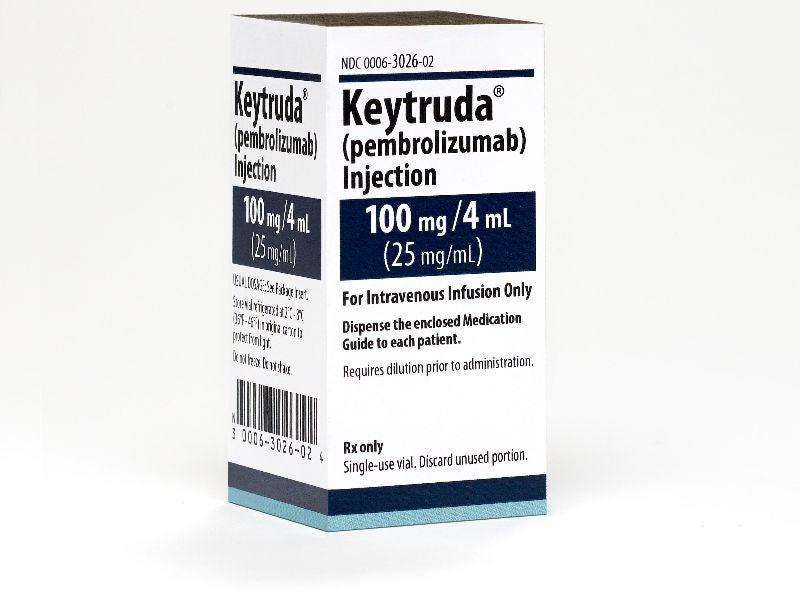
Merck (MSD) has reported that an exploratory analysis of the Phase III KEYNOTE-042 clinical trial revealed improvements with Keytruda in people suffering from metastatic non-squamous non-small cell lung cancer (NSCLC).
The data was from patients with PD-L1-expressing tumours, irrespective of KRAS mutational status.

Discover B2B Marketing That Performs
Combine business intelligence and editorial excellence to reach engaged professionals across 36 leading media platforms.
Merck conducted exploratory analysis to investigate the KRAS mutations prevalence and their link with efficacy in the study.
Of the 1,274 untreated patients with PD-L1-expressing tumours enrolled in KEYNOTE-042, 232 had no KRAS mutation and 69 possessed KRAS mutation, including 29 with the KRAS G12C mutation.
Whole-exome sequencing (WES) of tumour tissue and matched normal DNA was performed to establish the tissue tumour mutational burden (tTMB) and KRAS mutational status.
Trial participants were treated with 200mg intravenous Keytruda every three weeks (Q3W) or pemetrexed/paclitaxel until disease progression or unacceptable toxicity.

US Tariffs are shifting - will you react or anticipate?
Don’t let policy changes catch you off guard. Stay proactive with real-time data and expert analysis.
By GlobalDataResults demonstrated improvements on the primary endpoint of overall survival (OS), as well as on secondary endpoints of progression-free survival (PFS) and objective response rate (ORR) in patients treated with Merck’s anti-PD-1 therapy.
The improvements were not linked to the KRAS mutational status. Merck’s drug cut the risk of death by 58% in subjects having any KRAS mutation, and by 72% in those with the KRAS G12C mutation compared to chemotherapy.
Keytruda’s safety profile was observed to be consistent with that found in previous studies involving metastatic NSCLC patients.
Merck Research Laboratories oncology clinical research vice-president Dr Jonathan Cheng said: “KRAS mutations occur in approximately 20% of people with non-small cell lung cancer, and some previous studies have suggested that these mutations are associated with a poorer response to treatment.
“It was therefore encouraging to see in this exploratory analysis that Keytruda monotherapy was associated with a survival benefit in certain patients with metastatic nonsquamous non-small cell lung cancer, regardless of KRAS mutational status.”





